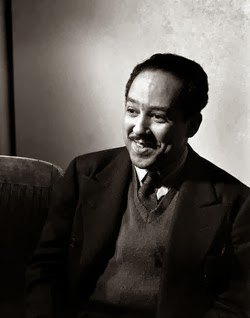
 Black history month, in America, is an annual observance in the United States, Canada, and the United Kingdom for remembrance of important people and events in the history of the African diaspora. From the event's initial phase, primary emphasis was placed on encouraging the coordinated teaching of the history of American blacks in the nation's public schools. The expansion of Black History Week to Black History Month was first proposed by the leaders of the Black United Students. The first celebration of the Black History Month took place at Kent State one year later, in February 1970. Americans have recognized black history annually since 1926, first as "Negro History Week" and later as "Black history month."
Black history month, in America, is an annual observance in the United States, Canada, and the United Kingdom for remembrance of important people and events in the history of the African diaspora. From the event's initial phase, primary emphasis was placed on encouraging the coordinated teaching of the history of American blacks in the nation's public schools. The expansion of Black History Week to Black History Month was first proposed by the leaders of the Black United Students. The first celebration of the Black History Month took place at Kent State one year later, in February 1970. Americans have recognized black history annually since 1926, first as "Negro History Week" and later as "Black history month." What you might not know is that black history had barely begun to be studied-or even documented-when the tradition originated. Although blacks have been in America at least as far back as colonial times, it was not until the 20th century that they gained a respectable presence in the history books.
Langston Hughes was an American poet, social activist, novelist, playwright, and columnist. He was one of the earliest innovators of the then-new literary art form jazz poetry. Hughes is best known for his work during the Harlem Renaissance. He famously wrote about the period that “the negro was in vogue” which was later paraphrased as “when Harlem was in vogue."
Langston Hughes is widely regarded as “the Bard of Harlem” for vividly capturing the literary ethos and artistic spirit of the Harlem Renaissance of the 1920s and 30s. He was one of the most prolific black writers of the twentieth century and possibly the first to earn his living entirely by means of his craft. Although he wrote in nearly every genre, he was primarily a poet and two of Hughes’s poems, “The Negro Speaks of Rivers” and “I, Too (Sing America)” have become important parts of the American literary canon. For his poems, plays, essays, novels, and short stories that together number in the hundreds, Langston Hughes stands as one of the most important American writers of the last century.
Here's one of his poems: I, too.
I, too, sing America.
I am the darker brother.
They send me to eat in the kitchen
When company comes,
But I laugh,
And eat well,
And grow strong.
Tomorrow,
I’ll be at the table
When company comes.
Nobody’ll dare
Say to me,
“Eat in the kitchen,”
Then.
Besides,
They’ll see how beautiful I am
And be ashamed.
I, too, am America.











